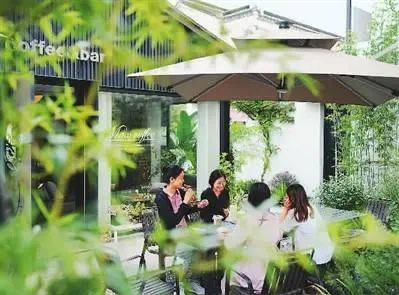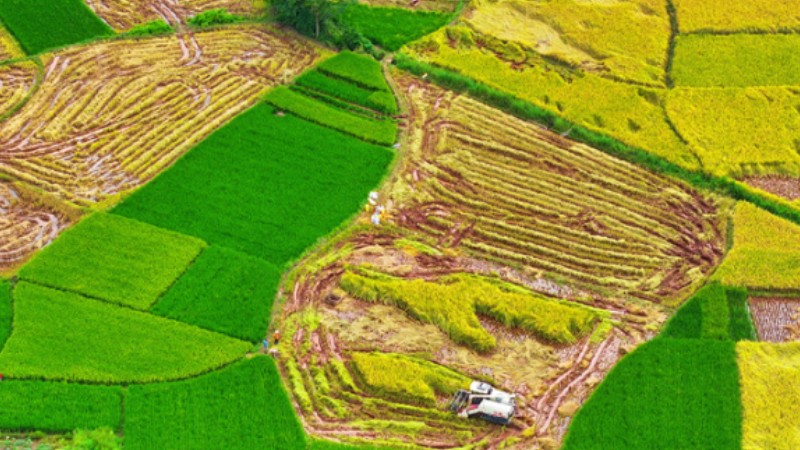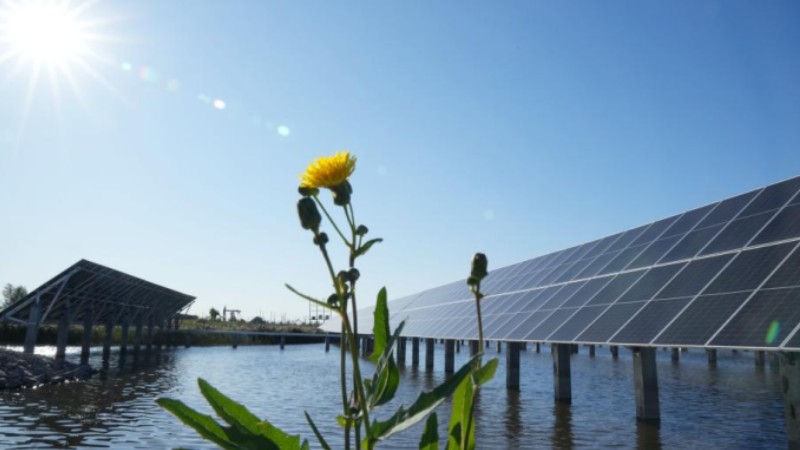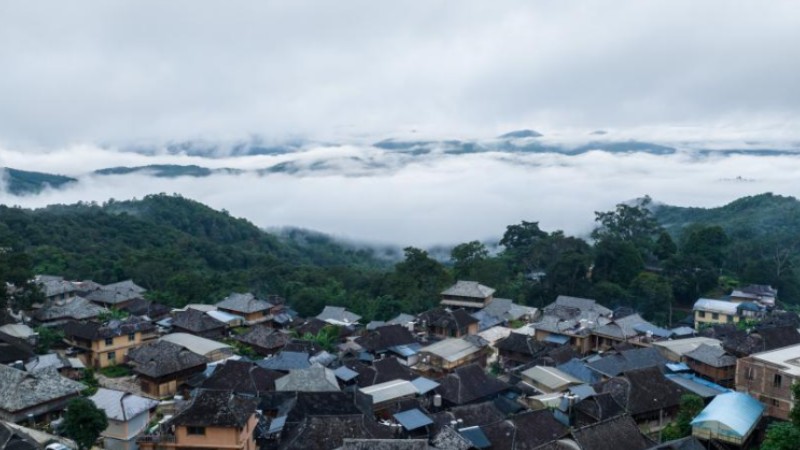Coffee shops thrive in E China's Zhejiang, boosting local development
By capitalizing on local conditions and resources, various places in east China's Zhejiang Province have worked on coffee shops with distinctive features in rural areas these past years, attracting coffee lovers while boosting development.
Despite a permanent population of only 600,000 people, Anji county of Huzhou city is home to over 300 coffee shops in mountainous terrain, fields, lakes, waterfalls, forests and a mine.

Photo shows visitors at a coffee shop in Lucun village, Balidian township, Huzhou city, east China's Zhejiang Province. (Xinhua/Weng Xinyang)
Tucked away in a mountain with lush bamboo forests in Penghu village, Baofu township, Anji county, Pubu coffee shop has gained increasing popularity. "The daily sales of our shop during holidays exceeds 400 cups," said a barista of the store, who added that tourists can grab a cup of coffee while appreciating the beautiful view of the mountains, waterfalls, and lakes, or camp on the grasslands on top of the mountain.
Another well-known coffee shop of Anji is the Deep Blue Coffeehouse in Hongmiao village. Located near an abandoned mine pit, it boasts of a spectacular view of a blue lake and rocks. It receives a total of 350,000 tourist visits in a year, with up to nearly 8,000 a day, generating more than 6 million yuan (about $821,220) for the village.
Known for a large number of returned overseas Chinese, Qingtian county in Lishui city sells about 15,000 cups of coffee every day and consumes over 80 tonnes of coffee beans annually. "One can enjoy authentic Italian coffee just by walking into any coffee shop," said Xu, who returned from Italy.
Combined with local elements, coffee has also helped boost development. With a strong historical and cultural atmosphere, Cangqiao Straight Street in Shaoxing city brings together nearly 10 coffee shops with different styles. A coffee festival has been held for two consecutive years in this street stretching about 1 kilometer, which not only provides an exchange platform for coffee shop owners, but has also become a highlight of the city.
Thanks to the thriving coffee industry, many young people who used to work outside have returned to their hometowns. In Hengshan village, Anji county, an abandoned bamboo and wood processing factory has been transformed into a communal space for entrepreneurs, where they can work while enjoying coffee.
Covering over 8,000 square meters, the communal space incorporates office space and dormitory areas, with accompanying facilities in place. In 2022, it received 473 people, who spent an average of 47 days here. With an average age of 31, the people staying here worked an average of 6.8 hours per day.
Ding Wenwen, a young talent working on the operations of the village, believes that today's countryside not only offers the appealing natural environment, but also convenient transportation and support facilities. This will encourage more people to develop their careers in the rural areas.
Photos
Related Stories
- Starbucks opens new coffee innovation park in China
- China's transformation brews in a cup of coffee
- Hainan grows big coffee business through BRI
- Moutai-flavored latte sellout in Beijing
- African coffee nations push for intra continental trade of coffee products
- Feature: Revolutionary culture-themed coffee attracts young fans in China
Copyright © 2023 People's Daily Online. All Rights Reserved.









